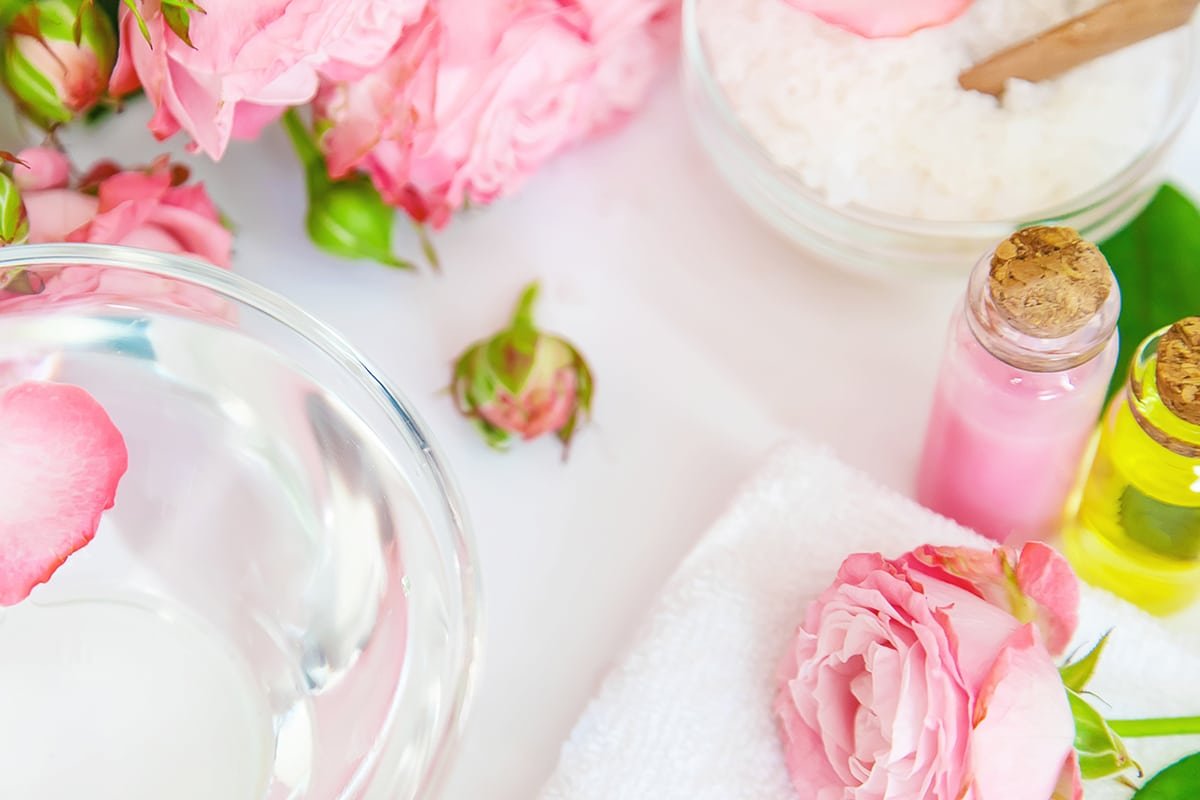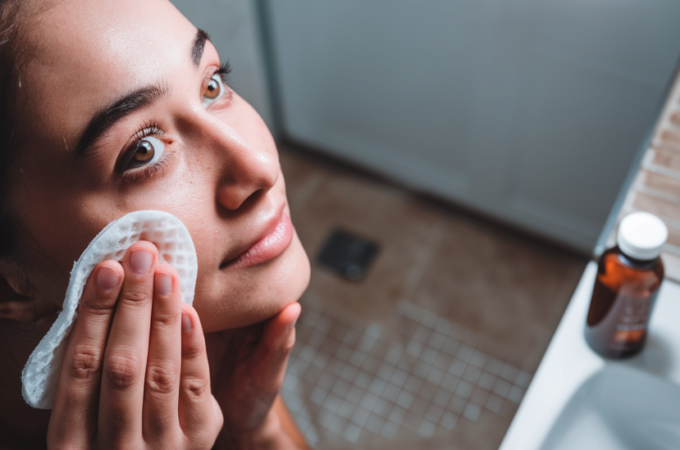
Floral Waters: What They Are And Their Benefits
In skincare, we often see floral waters mentioned in the ingredients of some products, but what exactly are they?
Floral waters: What they are and how they are made
Flower waters, also known as hydrosols or herbal distillates, have attracted attention for their aromatic fragrance and numerous skin benefits. They are often used in mists or incorporated into moisturisers and toners.
Flower waters are produced by steam distillation of plant material. This process is often used in the production of essential oils, making floral waters a by-product of essential oil production.
The process of making floral waters and essential oils can be broken down into the following steps.
Step 1: Selection of high-quality plant material to be used in the steam distillation process. Fresh flowers and herbs are often chosen for their fragrance, therapeutic properties and skin benefits.
Step 2: The selected plant material is placed in an apparatus where it is subjected to steam distillation. As the steam passes through the plant material, volatile oils are released into the steam.
Step 3: The steam, now mixed with the volatile oil, condenses in the steam distillation apparatus and is collected. The collected liquid represents two products, the essential oil, which floats to the top, and the floral water, which often forms the water-based portion at the bottom.
Step 4: The collected liquid is separated into essential oils and floral waters.
Beneficial compounds within floral waters
Floral waters contain water-soluble compounds from the plant they are derived from, as well as small amounts of essential oils. These create a gentle and aromatic solution that is beneficial to the skin with the properties of the plants from which they are derived. This is what makes them especially popular in waterless skincare brands.

Here is a breakdown of some of the water-soluble compounds found in floral waters and how they benefit the skin.
Flavonoids:
Flavonoids are plant pigments that contain powerful antioxidants. These antioxidants help protect the skin from free radicals, preventing premature ageing and skin damage. Flavonoids also stimulate collagen production, improve skin elasticity, soothe irritation and improve the overall appearance of skin.
Phenols:
Phenols are aromatic compounds with antioxidant and antibacterial properties. They help neutralise external aggressors to the skin and protect the skin from environmental damage. Phenols also have antimicrobial properties that can help fight bacteria and keep skin clear.
Organic acids:
Organic acids such as lactic acid, malic acid and citric acid help maintain the skin’s pH balance. They also promote gentle exfoliation, which gently removes dead skin cells to reveal an improved complexion. In addition to this, organic acids help regulate sebum production, unclog pores and reduce the appearance of acne.
Vitamins:
Flower waters contain different vitamins depending on the plant material they are made from. Some vitamins include vitamin C, vitamin E and B complex. These vitamins are known for their powerful antioxidant and anti-inflammatory properties. Some even have properties that promote collagen production and skin health.
Minerals:
Minerals found in floral waters include zinc, magnesium, potassium and calcium. These minerals contribute to the overall health and function of the skin by improving skin renewal, hydration and balance.
Now that we have an understanding of which compounds in floral waters are beneficial, we can explore how their addition to skin care products can enhance your skin care routine.

Benefits of floral waters
1. Moisturising
One of the greatest benefits of floral waters is that they moisturise and refresh the skin. The water-soluble compounds in floral waters help to replenish the skin’s moisture levels, leaving it feeling soft and supple.
2. Soothing
Floral waters also often have strong soothing and calming properties. They are excellent at reducing redness, inflammation and discomfort, making them ideal for sensitive and irritated skin. Also, because of their gentle nature, floral waters can be used on a daily basis without causing further irritation.
3. pH balancing
Floral waters help to balance the skin’s pH level, which is essential for maintaining a healthy complexion. Balanced pH levels contribute to a stronger skin barrier, better protection against environmental aggressors and an overall improved skin texture.
4. Antioxidants
Floral waters contain antioxidants that help protect the skin from environmental damage and premature ageing. Antioxidants neutralise harmful free radicals, reducing the appearance of fine lines, wrinkles and age spots. Regular use of floral waters can even help minimise oxidative stress and keep skin looking youthful and radiant.
5. Toning and clarifying
Floral waters act as natural toners, helping to firm and tone the skin. They help to refine the appearance of pores, reduce excess oil production and promote a clearer complexion. Floral waters provide a gentle and effective way to balance the skin’s natural oil production without causing dryness or stripping moisture from the skin.
In summary, floral waters or hydrosols are aromatic elixirs that offer a range of benefits to the skin. They are obtained through a steam distillation process that captures the essence and therapeutic properties of flowers, herbs and botanicals.
Floral waters provide hydration, soothing, pH balancing, antioxidant protection and toning benefits to the skin. They offer a natural and gentle skincare alternative that harnesses the power of botanicals in a convenient and fragrant form. Which is why more brands such as House of Immortelle are including them in their line of waterless skincare.




